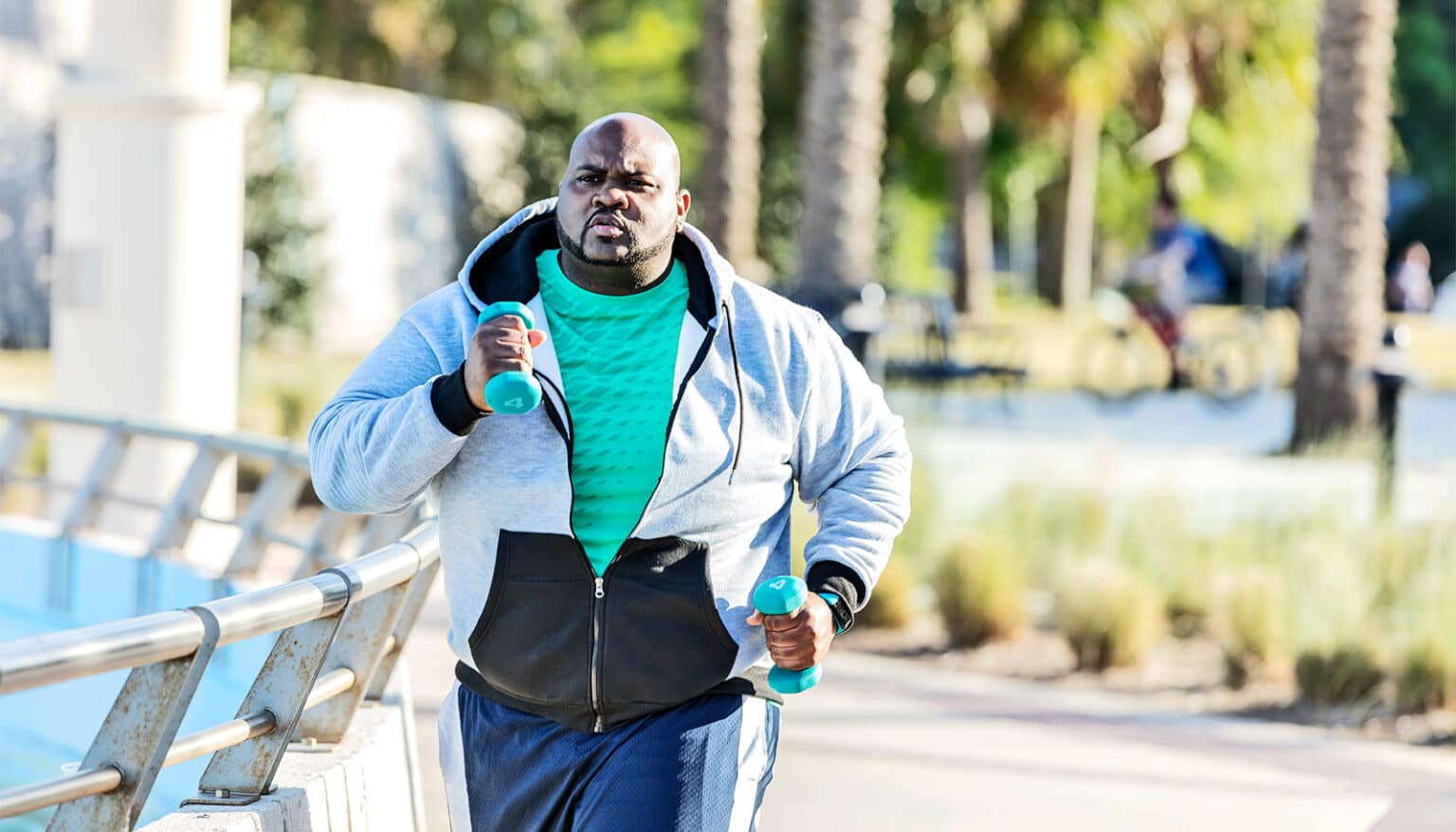
New research suggests intensive lifestyle interventions are an effective way of treating and improving liver disease.
In the study of 24 patients with metabolic dysfunction-associated steatohepatitis (MASH), a common liver disease caused by excessive fat buildup, one group followed a restricted diet and a high intensity interval training exercise program for 10 months. They dramatically improved their liver health over the control group of patients who received standard of care treatment.
Diet and exercise are the first lines of treatment for liver disease; however, this study is the first to examine the impact of diet and exercise on liver health and confirm the organ’s recovery through imaging and diagnostic biopsies. These techniques allow for measurements of liver inflammation, fat buildup, fibrosis development, and other indicators of liver health.
“Other studies investigated the impact of either diet or exercise on the liver, not both,” says study author Elizabeth Parks, professor of nutrition and exercise physiology at the University of Missouri School of Medicine.
“In addition, similar studies were just observational, but[…] we have technology for metabolic imaging that can give in-depth data on liver disease.”
Nutritionists determined the best food intake for each participant and tracked their caloric and nutrient intake, and pathologists examined blood biochemistries with each blood sample taken.
The patients treated lost about 13-22 pounds and had increased muscle mass, while the control group lost 0-9 pounds. The peak oxygen uptake, considered an indicator of cardiovascular health and the ability to exercise, was much higher on average for the treatment group compared to the control. Insulin sensitivity, which measures how effectively cells convert glucose to energy, also increased for treated patients.
Obesity is one of the most prominent risk factors in developing MASH, and other conditions like high blood pressure and type 2 diabetes can contribute. Lifestyle interventions can be used to treat these conditions and reverse liver damage. It may even protect against future development of MASH.
“Obesity and diabetes are going up in the country, and they are the two main risk factors for fatty liver disease,” Parks says.
“We know diet and exercise can alleviate these health conditions. Liver disease is increasing too fast. We were able to show in our research how diet and exercise should be the mainstay of treatment for the disease.”
Though more research is needed to validate and explore these findings, this breakthrough offers some hope.
“Our findings suggest liver disease doesn’t have to be a chronic, progressive condition,” Parks says.
The research appears in the Journal of Hepatology.
Source: University of Missouri
Original Study DOI: 10.1016/j.jhep.2024.06.017
Important Notice: This article was also published at https://www.futurity.org by Rochita Ghosh-U. Missouri where all credits are due.
Disclaimer
The watching, interacting, and participation of any kind with anything on this page does not constitute or initiate a doctor-patient relationship with Veripeudic.com. None of the statements here have been evaluated by the Food and Drug Administration (FDA). The products of Veripeudic.com are not intended to diagnose, treat, cure, or prevent any disease. The information being provided should only be considered for education and entertainment purposes only. If you feel that anything you see or hear may be of value to you on this page or on any other medium of any kind associated with, showing, or quoting anything relating to Veripeudic.com in any way at any time, you are encouraged to and agree to consult with a licensed healthcare professional in your area to discuss it. If you feel that you’re having a healthcare emergency, seek medical attention immediately. The views expressed here are simply either the views and opinions of Veripeudic.com or others appearing and are protected under the first amendment.
Veripeudic.com promotes evidence-based natural approaches to health, which means integrating her individual scientific and clinical expertise with the best available external clinical evidence from systematic research. By individual clinical expertise, I refer to the proficiency and judgment that individual clinicians acquire through clinical experience and clinical practice.
Veripeudic.com does not make any representation or warranties with respect to the accuracy, applicability, fitness, or completeness of any multimedia content provided. Veripeudic.com does not warrant the performance, effectiveness, or applicability of any sites listed, linked, or referenced to, in, or by any multimedia content.
To be clear, the multimedia content is not intended to be a substitute for professional medical advice, diagnosis, or treatment. Always seek the advice of your physician or other qualified health providers with any questions you may have regarding a medical condition. Never disregard professional medical advice or delay in seeking it because of something you have read or seen in any website, video, image, or media of any kind. Veripeudic.com hereby disclaims any and all liability to any party for any direct, indirect, implied, punitive, special, incidental, or other consequential damages arising directly or indirectly from any use of the content, which is provided as is, and without warranties.

